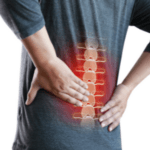New qualifications for LEV and legionella duty-holders

The British Occupational Hygiene Society (BOHS) has announced new examinations to meet what it says is growing demand for qualifications in the fields of legionella control and local exhaust ventilation (LEV) design.
Anyone testing or designing an LEV system must be competent to do so. BOHS’s new modular exam – P602: Basic design principles of local exhaust ventilation systems – aims to provide the basic knowledge and skills to design and commission LEV systems capable of adequately controlling identified hazards.
P602 complements an existing module on testing – P601: Initial appraisal and thorough examination and testing of local exhaust ventilation systems. The latest LEV guidance from the HSE – HSG258: Controlling airborne contaminants at work – a guide to local exhaust ventilation, contains references to both these modules as one measure of competency in these areas.
Those responsible for workplace water systems need to assess the risk of employees contracting Legionnaires’ disease, and control that risk. P901: Legionella – Management and control of building hot and cold water services‚ and P902: Legionella – Management and control of evaporative cooling and other high-risk systems‚ aim to provide an overview of the risk of legionella infection and how it can be controlled in these different types of water systems. (Successful completion of P901 is a prerequisite of P902.)
To find out more about these and other proficiency modules available from BOHS, visit the examinations section of its website at the link below.
Approaches to managing the risks associated Musculoskeletal disorders
In this episode of the Safety & Health Podcast, we hear from Matt Birtles, Principal Ergonomics Consultant at HSE’s Science and Research Centre, about the different approaches to managing the risks associated with Musculoskeletal disorders.
Matt, an ergonomics and human factors expert, shares his thoughts on why MSDs are important, the various prevalent rates across the UK, what you can do within your own organisation and the Risk Management process surrounding MSD’s.
New qualifications for LEV and legionella duty-holders
The British Occupational Hygiene Society (BOHS) has announced new examinations to meet what it says is growing demand for qualifications in the fields of <i>legionella</i> control and local exhaust ventilation (LEV) design.
Safety & Health Practitioner
SHP - Health and Safety News, Legislation, PPE, CPD and Resources Related Topics
New flexible working legislation – what does it mean?
Amazon’s global head of safety to step down
StocExpo returns triumphant

